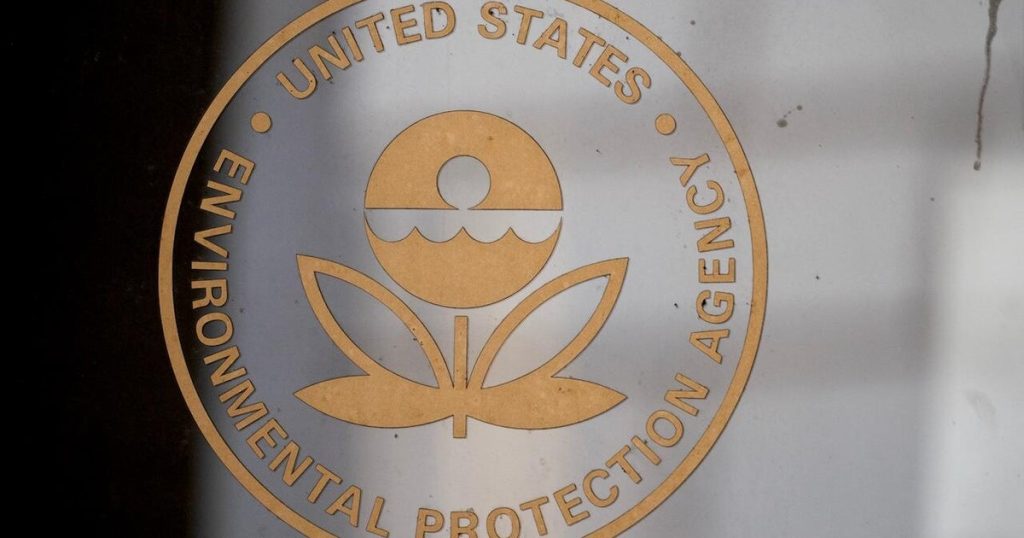In a controversial shift towards deregulation, the Environmental Protection Agency (EPA) has announced a measure allowing industries to bypass certain environmental regulations under the Clean Air Act. This move, made public on Monday, involves a simplified process for companies to request presidential exemptions simply by sending an email to the agency. Critics argue this policy could undermine public health protections designed to limit air pollution, raising significant concerns among environmental advocates and lawmakers.
| Article Subheadings |
|---|
| 1) Overview of the New EPA Initiative |
| 2) Implications for Industries |
| 3) Responses from Environmental Advocates |
| 4) Legal Challenges Anticipated |
| 5) Community Awareness and Advocacy |
Overview of the New EPA Initiative
On Monday, the Environmental Protection Agency announced a streamlined mechanism for industries wishing to circumvent established provisions of the Clean Air Act. This initiative allows companies to email the agency to request exemptions based on reasons related to national security. According to the EPA, the decision to grant such exemptions rests solely with the President, who will evaluate the merits of each request. This announcement aligns with a broader trend of deregulation carried out during the Trump administration, intended to reduce perceived burdens on American businesses.
Implications for Industries
For many years, industries have been subject to regulations designed to limit environmental damage and protect public health. Companies have invested significantly in technologies aimed at reducing toxic emissions to comply with the Clean Air Act. However, the new exemption policy offers a potential way for businesses to bypass these costly mandates. This deregulation could lead to lower operational costs for industries, at the expense of environmental safeguards that prevent harmful air pollutants from affecting the public. Notably, requests for exemptions must justify how they bolster national security, a clause that some critics argue could be easily manipulated by corporations seeking to sidestep ecological responsibilities.
Responses from Environmental Advocates
The announcement has sparked outrage among environmental advocates, who argue that the measure dangerously undermines public health protections. Critics, including environmental law experts, have expressed profound concern over the potential implications of allowing businesses to evade regulations intended to safeguard air quality. Environmental law authority Michael Gerrard stated,
“This section of the Clean Air Act is designed to protect people from exposure to the most toxic chemicals…”
This sentiment is echoed by numerous lawmakers and activists, who view the policy as a stark departure from accountability in environmental standards.
Legal Challenges Anticipated
Legal experts predict that the EPA’s recent policy will likely face significant challenges in the judicial system. This apprehension stems from the broad language of the Clean Air Act, which could potentially allow for widespread abuse of the exemption process. Environmental law scholar Mary Nichols commented,
“I’ve never seen anything like this before…”
citing concerns over the potential for arbitrary decisions in granting exemptions. The likelihood of lawsuits challenging the legality of the exemption process indicates an impending legal battle concerning environmental and public health protections.
Community Awareness and Advocacy
As companies prepare to submit exemption requests before the March 31 deadline, community groups are gearing up for advocacy efforts aimed at promoting transparency and accountability. Organizations such as the Environmental Defense Fund have committed to publicizing any requests for exemptions submitted by companies. The group’s executive director, Joe Bonfiglio, emphasized the importance of maintaining vigilance on this issue, stating,
“This is something that we will fight to make public…”
These advocacy efforts aim to keep affected communities informed about pollution risks associated with nearby industries. The push for community awareness highlights the ongoing battle between environmental protection and industrial interests.
| No. | Key Points |
|---|---|
| 1 | The EPA has introduced a new policy allowing industries to request exemptions from certain regulations by emailing the agency. |
| 2 | Critics argue this could weaken public health protections and lead to increased air pollution. |
| 3 | Environmental advocates are expressing profound concerns over the potential for loopholes in the exemption process. |
| 4 | Legal experts anticipate that the new policy will face significant challenges in court due to its wide-ranging implications. |
| 5 | Community organizations are mobilizing efforts to ensure transparency and public awareness regarding the exemption requests submitted. |
Summary
The EPA’s recent announcement to expedite the process for industries seeking exemptions from Clean Air Act regulations has raised significant concerns among environmental advocates and lawmakers. While proponents argue for the deregulatory benefits borne out of this policy, critics warn of potential harms to public health and environmental safety. The repercussions of this policy may unfold in both the legal realm and the broader community, as advocates push for heightened transparency and accountability in the face of increasing industrial influence.
Frequently Asked Questions
Question: What is the primary purpose of the EPA’s new exemption policy?
The primary purpose of the new exemption policy is to allow industries to request exemptions from compliance with certain Clean Air Act regulations, based on national security justifications.
Question: How can companies apply for an exemption?
Companies can apply for an exemption by emailing the EPA with a detailed justification for why they should be exempted, along with information to support their claim regarding national security interests.
Question: What concerns do critics have regarding this new policy?
Critics express concerns that the new policy could lead to increased air pollution and undermine public health protections that safeguard communities against toxic emissions from industries.


